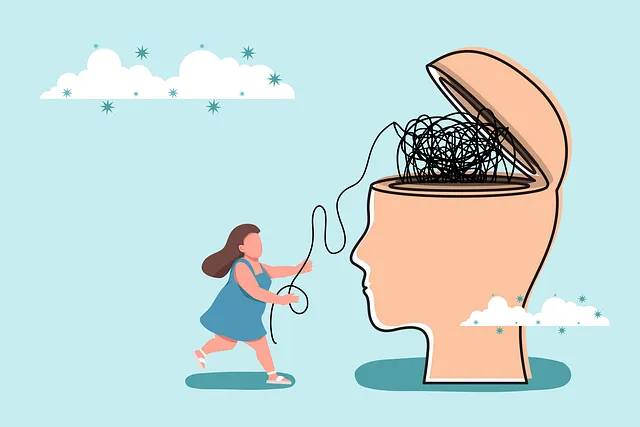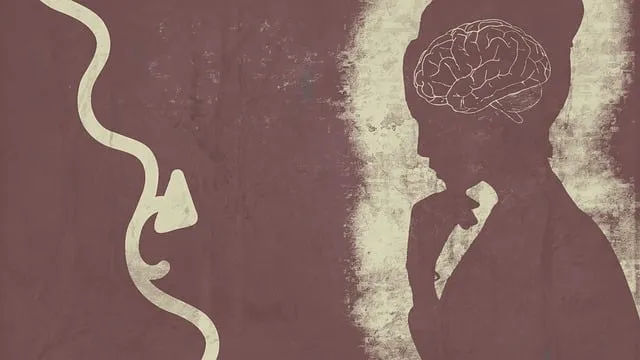Aurora Kaiser's specialized mental health classes equip professionals for Crisis Intervention Team (CIT) roles, providing comprehensive training in communication, crisis assessment, and de-escalation. Their holistic approach integrates risk management, compassion cultivation, and self-care practices, based on resources like Risk Management Planning for Mental Health Professionals and the Mental Wellness Podcast Series. Through interactive exercises and real-life scenarios, these classes empower individuals to deliver timely, compassionate interventions. Organizations like Aurora Kaiser emphasize structured program evaluation, public awareness campaigns, and podcast series to enhance crisis intervention effectiveness and promote mental wellness in high-risk environments.
In today’s challenging social landscape, effective crisis intervention teams (CITs) are vital for managing emotional and psychological crises. This comprehensive guide explores CIT training programs, focusing on the critical role of mental health professionals. We delve into the key components of successful programs, including the renowned Aurora Kaiser mental health classes, and provide insights into implementation and evaluation. Understanding these aspects is essential for fostering resilient communities and enhancing crisis response capabilities.
- Understanding Crisis Intervention Teams: A Comprehensive Overview
- The Role of Mental Health Professionals in Team Training
- Key Components of Effective Aurora Kaiser Mental Health Classes
- Implementing and Evaluating Crisis Intervention Programs
Understanding Crisis Intervention Teams: A Comprehensive Overview

Crisis Intervention Teams (CITs) are specialized groups within emergency response systems designed to provide immediate and effective support during critical situations. These teams typically consist of trained professionals from various disciplines, including law enforcement, mental health experts, and social workers, who collaborate to de-escalate high-risk scenarios. At Aurora Kaiser, mental health classes play a pivotal role in preparing individuals for CIT roles by imparting essential skills.
The training programs focus on enhancing communication strategies, crisis assessment techniques, and conflict resolution methods tailored to interact with individuals experiencing mental health crises. Social Skills Training and Mindfulness Meditation are integral components, teaching participants to recognize emotional cues, build rapport, and employ calming techniques. Furthermore, Community Outreach Program Implementation is encouraged, fostering a network of support that extends beyond the immediate response, ensuring long-term well-being for those in crisis.
The Role of Mental Health Professionals in Team Training

In crisis intervention team training programs, mental health professionals play a pivotal role, providing expertise and guidance that are indispensable for equipping teams to handle critical situations effectively. These professionals, often with specialized qualifications like those offered by Aurora Kaiser in mental health classes, bring a deep understanding of human behavior, trauma responses, and recovery processes. They design curricula that not only educate team members on crisis assessment, intervention techniques, and de-escalation strategies but also foster an environment where open discussions about mental wellness can flourish. This holistic approach ensures that team members not only gain technical skills but also develop the emotional resilience necessary to support individuals in their most vulnerable states.
Moreover, these professionals contribute to enhancing public awareness campaigns development within the context of crisis intervention training. By integrating topics like stigma reduction and the importance of early intervention, they empower teams to recognize signs of mental health crises in community settings. This not only boosts confidence among team members but also encourages bystanders to take proactive roles in supporting individuals at risk. Ultimately, their involvement enriches the overall program, making it more inclusive, effective, and aligned with current best practices in mental wellness support.
Key Components of Effective Aurora Kaiser Mental Health Classes

Aurora Kaiser mental health classes are renowned for their comprehensive approach, integrating essential components that equip professionals with the skills to handle crises effectively. These include a strong foundation in risk management planning, enabling practitioners to anticipate and mitigate potential risks within their practice settings. By incorporating techniques from the Risk Management Planning for Mental Health Professionals, instructors ensure that participants are prepared to navigate challenging situations safely and ethically.
Beyond technical proficiency, the classes emphasize compassion cultivation practices, acknowledging the importance of self-care in demanding mental health professions. This holistic approach, often highlighted in the Mental Wellness Podcast Series Production, fosters resilience and strengthens professionals’ ability to offer empathetic support to their clients during crises. Through interactive exercises and real-life scenarios, Aurora Kaiser’s training empowers individuals to provide timely and compassionate intervention.
Implementing and Evaluating Crisis Intervention Programs

Implementing effective crisis intervention programs requires a structured approach and continuous evaluation. Organizations like Aurora Kaiser offer mental health classes designed to empower individuals with the skills needed to manage and de-escalate crises. These training programs are crucial in fostering a culture of support, especially in high-risk environments. By investing in such initiatives, institutions can enhance their ability to respond to crises effectively while promoting mental wellness.
Regular evaluation is essential to measure the impact and identify areas for improvement. This involves gathering feedback from participants, tracking crisis incident rates, and analyzing the overall success of the program. The data collected informs adjustments to the curriculum, ensuring that the training remains relevant and aligned with current best practices. Additionally, public awareness campaigns development and mental wellness podcast series production can complement these programs by amplifying their reach and providing ongoing support for individuals in need.
Crisis intervention team training programs, such as those offered by Aurora Kaiser mental health classes, play a vital role in equipping professionals with the skills to navigate and de-escalate critical situations. By understanding the key components of effective training, including comprehensive overviews, mental health professional involvement, and structured curricula, organizations can implement robust crisis intervention programs. Continuous evaluation ensures these programs remain impactful and adapted to evolving needs, fostering safer and more supportive environments for all involved.






